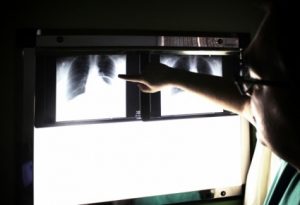The manufacturer of a surgical device had a duty to warn the purchasers – not just the doctors – of its potential dangers. 
That’s according to a ruling in a recent case out of Washington state, where justices sided with plaintiff that medical device manufacturers have a duty to warn hospitals as well as physicians because doctors aren’t the ones actually buying the devices.
Although the ruling doesn’t have a direct impact on case law here in Massachusetts, it’s important to highlight because state high courts will often take cues from their sister courts when weighing important similar issues, especially those of first impression. Additionally, the case involves a particular kind of medical device that is widely used nationally, including here in the Commonwealth.
It’s called the da Vinci System, developed in 1997. Surgeons use it often to perform laparascopic surgeries, which are minimally invasive procedures, sometimes referred to as “keyhole surgeries.” This modern technique, involves performing operations far from their location via small incisions elsewhere in the body. The benefit of these procedures is that recovery times tend to be far less and complications tend to be fewer. It’s used in about 85 percent of prostate surgeries, which was the case at an issue at hand.
According to court records in this defective products case, defendant was the maker and marketer of this system, which is sold to medical centers and hospitals throughout the country. Yet even in cases where it is allowed (and it is only cleared when a physician gives it the go-ahead), it still has to be used by a credentialed surgeon because it is considered a complex medical device. Even skilled surgeons have to be trained and experienced to use it successfully. “Confidence” with the device isn’t achieved until a surgeon has been successful in completing between 150 to 250 procedures with the device. Hospitals are responsible for enforcing their own requirements for credentialing surgeons. In Washington state, doctors can be cleared for credentials after having conducted three or four surgeries overseen by another surgeon. Those initial three or four surgeries selected should be “simple” according to manufacturer guidelines.
The doctor in this case had about 15 years of experience in performing open prostate surgeries, completing about 100 before plaintiff’s surgery for treatment of prostate cancer. However, he hadn’t conducted a procedure with the da Vinci device. Plaintiff was considered to be severely obese, and although he gave his consent to the procedure with use of the da Vinci System, manufacturer guidelines for those initial surgeries recommend a patient have a BMI of no more than 30. Plaintiff’s was 39. Plus, plaintiff had three prior abdominal surgeries, and manufacturer guidelines indicate a patient for these earlier surgeries shouldn’t have any.
During the procedure- the first laparascopic procedure the doctor had undertaken with this device – the doctor reportedly failed to properly position plaintiff based on his weight according to manufacturer guidelines. Plaintiff suffered complications. The doctor soon realized the rectal wall was cut, and he quickly converted to an open procedure, with another surgeon helping to fix the tear.
After the surgery, plaintiff reportedly suffered a poor quality of life. He suffered respiratory failure, needed to be on a ventilator, suffered renal failure and infection. He was incontinent and needed to wear a colostomy bag. He also suffered muscular damage and was unable to walk on his own without assistance. He died four years later.
A year after the surgery, but prior to his death, plaintiff filed a lawsuit against the doctor, his partner, their medical practice and the medical center. He later also amended that complaint to include the manufacturer of the medical device.
After he died, his wife proceeded with the case as representative of her husband’s estate. Before trial, she settled with the doctors, their private practice and the medical center. However, she proceeded with the case against the medical device manufacturer for claims of product defect, breach of warranty, breach of contract, failure to warn, negligence and violation of the state’s consumer protection act. Trial court granted summary judgment on all claims except failure to warn.
Manufacturer presented expert witness testimony opining it was solely the doctor who had been negligent in performing the surgery by failing to perform his first procedure with the device on a patient who was thin and had no prior abdominal surgeries.
Jurors found in favor of defendant.
Plaintiff appealed, arguing the trial court failed to instruct jurors that manufacturer had a duty to warn the medical center of certain risks. An appellate court affirmed the earlier decision, finding manufacturer had no duty to warn the medical center because it had already warned the doctor.
The state supreme court, which also considered four amici briefs in the case, reversed. The court held that manufacturers have a duty to warn hospitals that purchase medical products of the potential danger of those products. The manufacturer’s duty to warn the purchaser (i.e., the hospital) isn’t excused simply because it has warned the doctor who uses the device.
If you have suffered personal injury in Massachusetts, call Jeffrey Glassman Injury Lawyers for a free and confidential appointment — (617) 777-7777.
Additional Resources:
Taylor v. Intuitive Surgical Inc., Feb. 9, 2017, Washington State Supreme Court
More Blog Entries:
Mitchell v. City of Warren: Products Liability Personal Injury Cases, April 22, 2015, Boston Defective Product Lawyer Blog
 Boston Personal Injury Attorney Blog
Boston Personal Injury Attorney Blog

